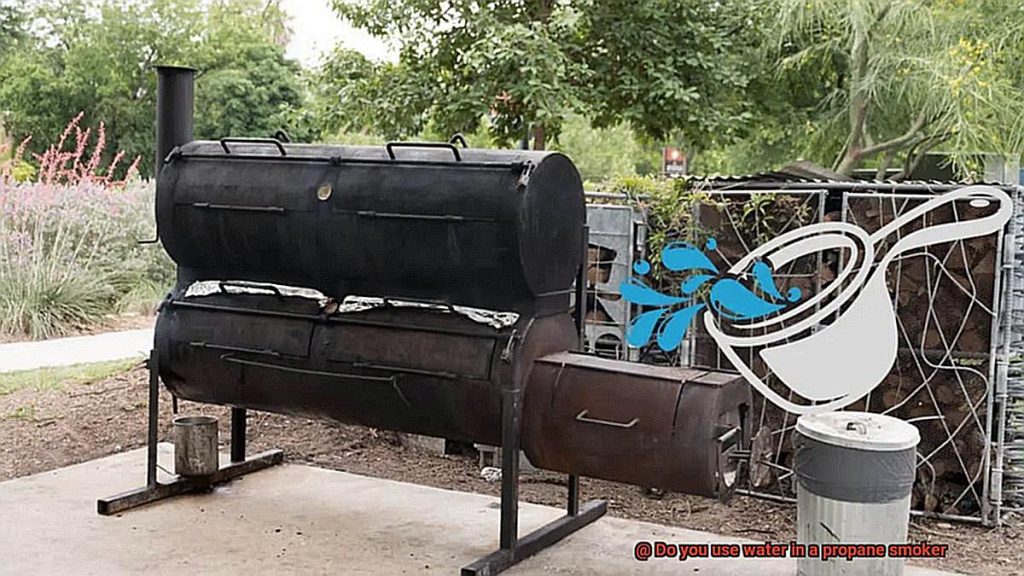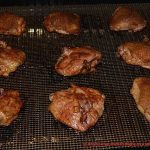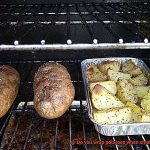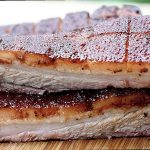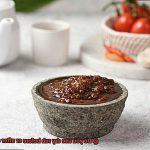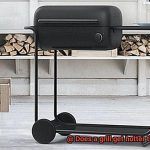Are you a newbie to grilling or smoking and feeling overwhelmed with all the different techniques, tools, and ingredients involved? Well, don’t worry, we’ve got you covered. One question that often arises among beginners is whether or not to use water in a propane smoker. It may seem like a simple query but trust us when we say it can make a massive difference in the taste and texture of your food.
Using water in a propane smoker is a popular technique used to maintain consistent temperature and add moisture to the cooking environment. This method helps prevent meat from drying out or becoming tough and chewy. However, some grilling enthusiasts argue that using water can dilute the flavor of your meat and make it soggy.
So, should you use water or not? The decision ultimately depends on personal preference and the type of meat you’re cooking. For instance, certain meats like brisket and pork shoulder benefit from added moisture while others like chicken and fish may not need it.
In this blog post, we’ll delve deeper into the pros and cons of using water in a propane smoker. We will also provide insights on when and how to use it effectively so that you can become an expert at using water in your propane smoker. Get ready to take your grilling game up a notch.
Contents
What is a Propane Smoker?
This outdoor cooking equipment uses propane gas as its primary fuel source to smoke food, giving it a unique flavor and aroma that will tantalize your taste buds.
Propane smokers come in various sizes and styles, from small portable models to large commercial units. They’re easy to use and provide consistent heat, essential for smoking meats. You can adjust the temperature control system to your desired level, allowing you to cook your food at low and slow temperatures. This enhances the flavor and tenderness of the meat, making it juicy and delicious.
Unlike traditional wood-fired smokers, propane smokers produce less smoke, making them ideal for those who live in areas with strict fire codes or have sensitive neighbors. Plus, they require less maintenance than other types of smokers, making them a popular choice among busy home cooks.
When using a propane smoker, many people add water to the smoker’s water pan. This helps regulate the temperature inside the smoker and keeps the meat moist while it cooks. The water acts as a heat sink, absorbing and releasing heat as needed to keep the temperature steady. It also creates steam that surrounds the meat and keeps it from drying out.
But whether or not to use water in your propane smoker is up to personal preference and the type of meat being cooked. Some cuts of meat are fatty enough that they don’t need additional moisture from the water pan. In those cases, you can experiment with adding other liquids like apple juice or beer to impart additional flavor to your food.
Benefits of Using Water in a Propane Smoker
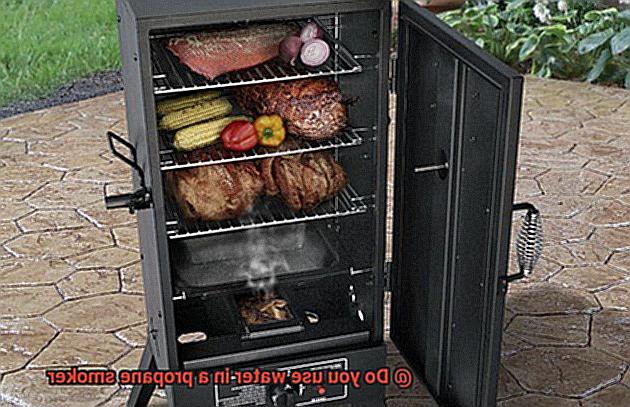
Smoking meat has never been easier with a propane smoker. Not only is it a convenient way to achieve a unique smoky flavor and aroma in your meat, but adding water to the smoker’s water pan can elevate the quality of your smoked meat in several ways.
To begin with, using water in a propane smoker can help maintain consistent temperatures inside the smoker. The water acts as a natural buffer against sudden temperature changes, such as opening the smoker door or adding more wood chips. This means that your meat will cook evenly and to perfection without any interruptions.
Aside from regulating temperature, using water in a propane smoker can also keep the meat moist during cooking. The water evaporates and creates steam that circulates around the meat, preventing it from drying out and becoming tough. This is especially important for leaner cuts of meat that tend to dry out quickly.
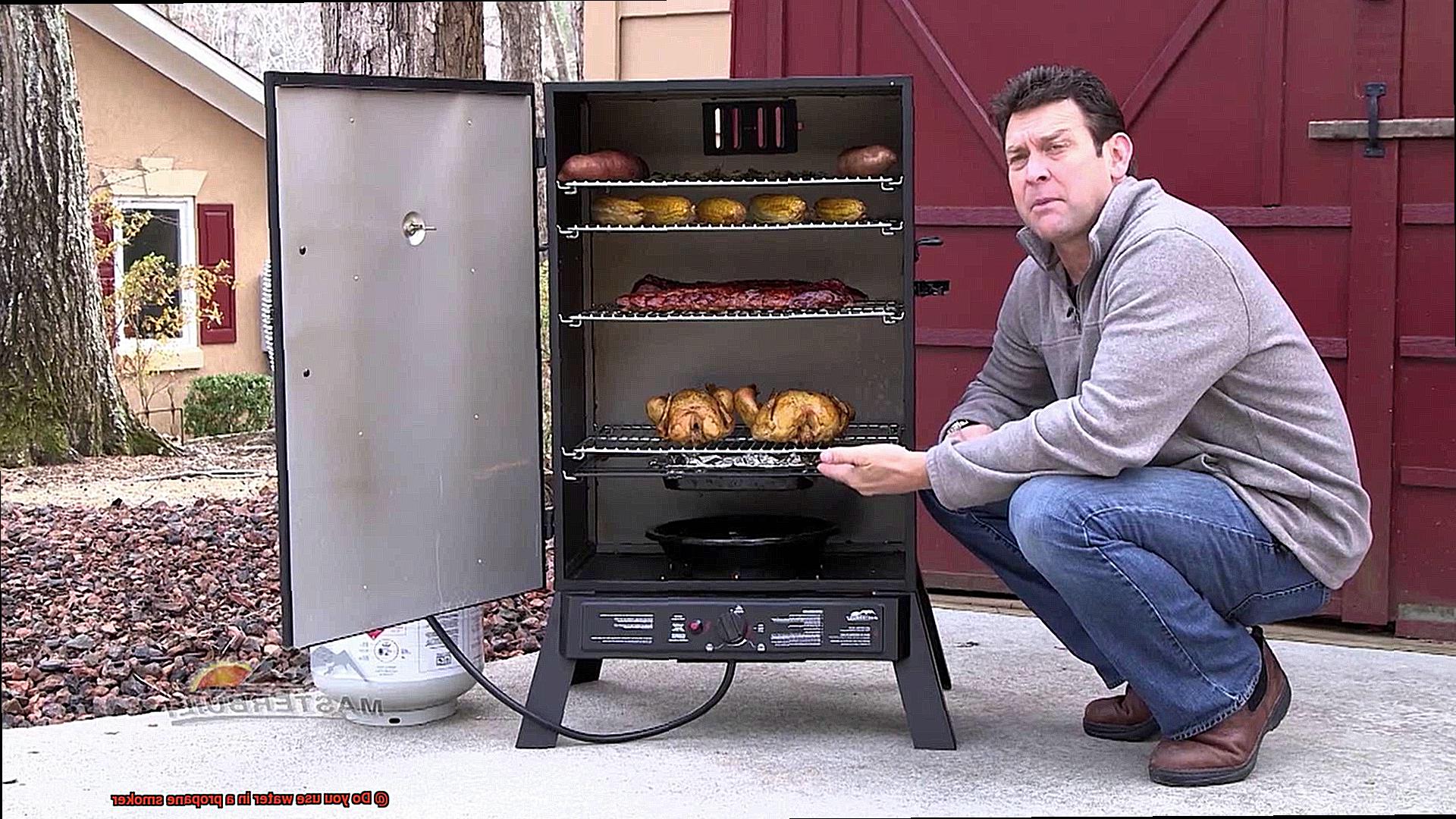
Adding water to the smoker can also infuse flavor into the meat. You can add herbs, spices, or even beer to the water pan and let the steam carry these flavors into the meat. This results in a more complex and delicious end product that will leave your taste buds dancing with joy.
Finally, using water in a propane smoker can reduce the amount of smoke produced during the smoking process. When wood chips burn, they release smoke that contains creosote and other harmful chemicals. By adding water to the smoker, you can lessen the amount of smoke produced, creating a cleaner and healthier environment for your food to cook in.
When Is Water Not Necessary in a Propane Smoker?
While some smokers come equipped with a water pan, others do not, leaving many wondering if it’s necessary to use one at all.
The truth is, there’s no easy answer. The decision to add water or not ultimately depends on what you’re cooking and how you prefer to cook it. Water can play a crucial role in regulating temperature and keeping meat moist, but there are certain instances where it may be unnecessary.
One such instance is when smoking meat that already has a high moisture content, such as chicken or pork shoulder. In these cases, adding water may not be necessary and could even dilute the natural flavors of the meat.
Another situation where using water may not be necessary is when developing a crust on the outside of your meat is desired. For example, when smoking brisket, adding water could create steam and hinder the formation of a delicious crust.
Ultimately, the decision to use water in your propane smoker is up to you and your personal preferences. It’s worth experimenting with both methods – with and without water – to see which produces the results you prefer.
Alternatives to Water for Use in a Propane Smoker
Look no further. We’ve researched some alternatives that will take your BBQ game to the next level.
First on our list is beer and wine. Not only do these alcoholic beverages add a unique flavor, but they also contain sugars and acids that can tenderize your meat. Keep in mind that alcohol evaporates at a lower temperature than water, so it’s important to keep an eye on it and add more throughout the cooking process if needed.
Next up is vinegar. Adding vinegar to the water pan can give your meat a tangy flavor while breaking down proteins to create a more tender result. But be careful not to use too much as it can overpower the natural flavors of your meat.
If you want to add a fruity twist, try using fruit juices like apple or pineapple juice instead of water. These juices contain natural sugars and acids that can tenderize your meat while giving it a sweet and fruity flavor. Just make sure to monitor the sugar content as it can cause your meat to burn if not watched closely.
Lastly, some people choose to replace water with sand or rocks in their smoker’s water pan for a more stable temperature. Sand and rocks retain heat better than water, but it’s essential to ensure they’re clean and free of any chemicals that could contaminate the food.
How to Add Water to the Water Pan of a Propane Smoker
For those new to smoking meat, adding water to the water pan of a propane smoker may seem like a daunting task. However, it is a simple but essential step in achieving perfect barbecue results. In this guide, we will discuss five easy steps to follow when adding water to your propane smoker’s water pan.
Step 1: Locate the Water Pan
The water pan is a crucial component of your propane smoker. It is usually located at the bottom of the smoker, directly above the burner. You can remove it easily for cleaning purposes.
Step 2: Fill the Water Pan with Water
Once you have located the water pan, fill it with clean, cold water. It is best to use cold water as hot water can cause the temperature inside the smoker to rise quickly. Ensure you leave enough space for the water to bubble and steam during cooking.
Step 3: Monitor the Water Level
As you smoke your meat, make sure to monitor the water level in the pan. The water will evaporate over time, so you’ll need to add more as necessary. Keep an eye on the pan every hour or so and top it up with cold water if needed. However, be careful not to overfill the pan as it may boil over and make a mess inside your smoker.
Step 4: Experiment with Flavors
If you want to add some excitement to your meat, you can add herbs, spices, or even beer to the water pan. This will infuse your meat with unique flavors and aromas that will tantalize your taste buds.
Step 5: Clean the Water Pan
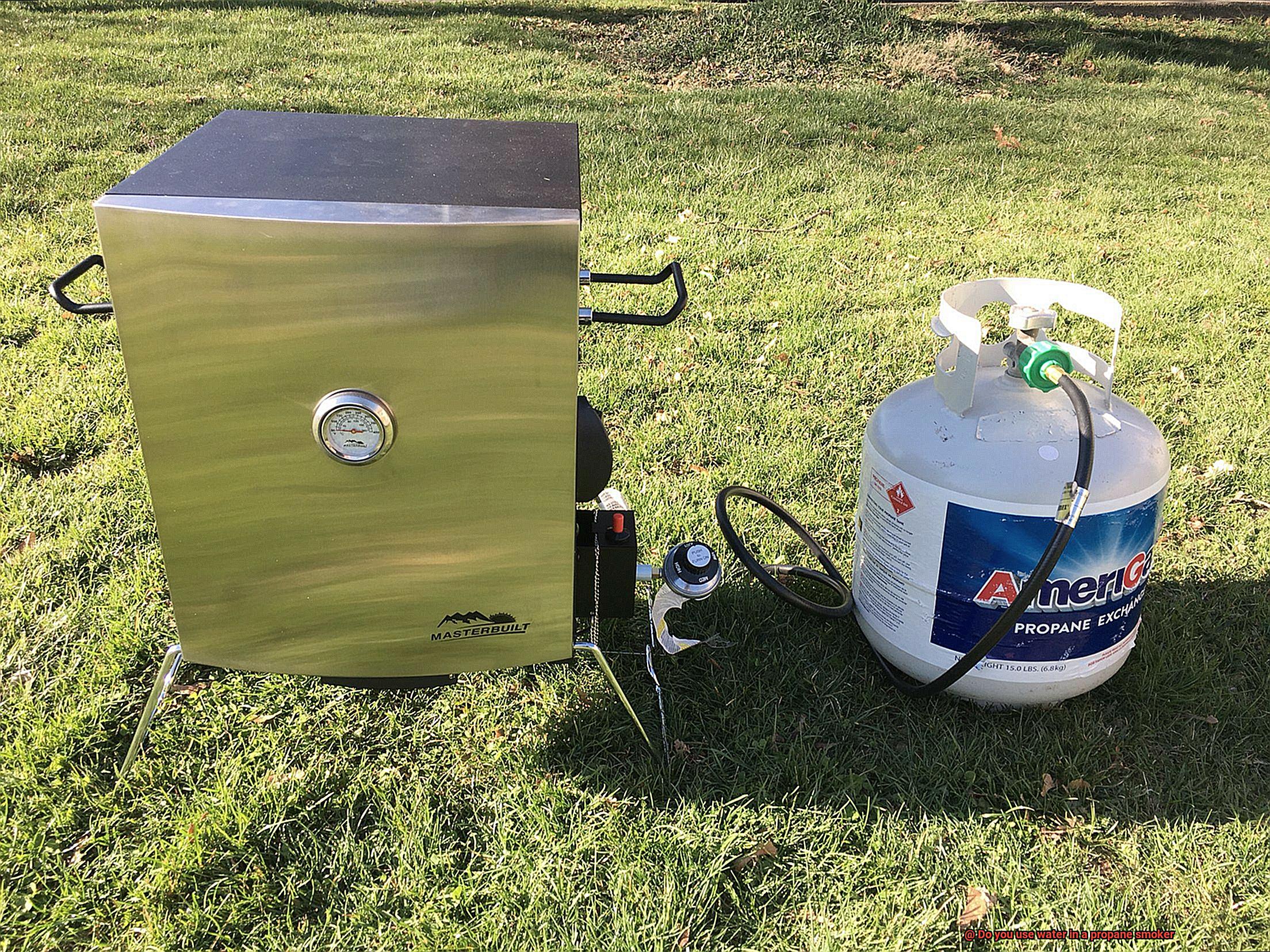
After each use, make sure to clean the water pan thoroughly. Use warm soapy water and a soft sponge to remove any residue or buildup. Rinse it thoroughly and dry it completely before storing it away.
Tips for Maintaining Temperature and Moisture in a Propane Smoker
Smoking meats in a propane smoker can be an excellent way to achieve mouth-watering results. However, to get it right, you need to maintain the right temperature and moisture levels in your smoker. Here are some tips that will help you maintain these levels and achieve perfect results every time.
Use a Water Pan for Moisture
A water pan is a simple and effective way to maintain moisture in your propane smoker. The water in the pan evaporates as the smoker heats up, creating steam that surrounds the meat and keeps it moist. This is important because dry meat can ruin the flavor and texture of your smoked meat.
Adjust the Vents for Temperature Control
The vents on your propane smoker can be adjusted to control the temperature and moisture levels. Opening the vents will increase airflow and raise the temperature, while closing them will decrease airflow and lower the temperature. Experiment with different vent settings until you find the perfect balance for your desired cooking temperature.
Monitor the Thermometer Regularly
A thermometer is an essential tool for maintaining the right temperature in a propane smoker. You should monitor it regularly to ensure that the temperature stays steady throughout the cooking process. If the temperature starts to drop, adjust the heat source to keep it at the desired level.
Use a Heat Deflector for Even Cooking
A heat deflector is a device that helps distribute heat evenly throughout the smoker. It prevents hot spots from forming, which can cause uneven cooking and affect the flavor of your meat. This is particularly important when cooking larger cuts of meat that require longer cooking times.
Use High-Quality Wood Chips for Flavor
Using wood chips in your propane smoker can add flavor and moisture to your meat. Soak them in water for at least 30 minutes before using them to prevent them from burning too quickly. High-quality wood chips will also affect the moisture level in your smoker, so choose wisely.
umXRJdg18CI” >
Conclusion
In conclusion, the decision to use water in a propane smoker is entirely up to personal preference. However, it can significantly impact the taste and texture of your smoked meat. Adding water to the pan helps regulate temperature and keep meat moist during cooking, but it may not be necessary for all types of meat. Experimenting with different methods is crucial to find what works best for you.
Propane smokers are an excellent option for busy home cooks who want to achieve a unique smoky flavor without the hassle of traditional wood-fired smokers. They’re easy to use and provide consistent heat, making them perfect for achieving mouth-watering results every time.
If you do choose to use water in your propane smoker, there are many benefits, including maintaining consistent temperatures, infusing flavors into the meat, and reducing the amount of smoke produced during cooking. However, there are also alternatives that can enhance the flavor and tenderness of your meat.
To achieve perfect results every time, it’s essential to maintain temperature and moisture levels in your propane smoker. Using a water pan, adjusting vents, monitoring the thermometer regularly, using a heat deflector, and choosing high-quality wood chips are all tips that can help you become an expert at using water in your propane smoker.
Ultimately, whether or not you decide to use water in your propane smoker depends on personal preference and the type of meat being cooked.

